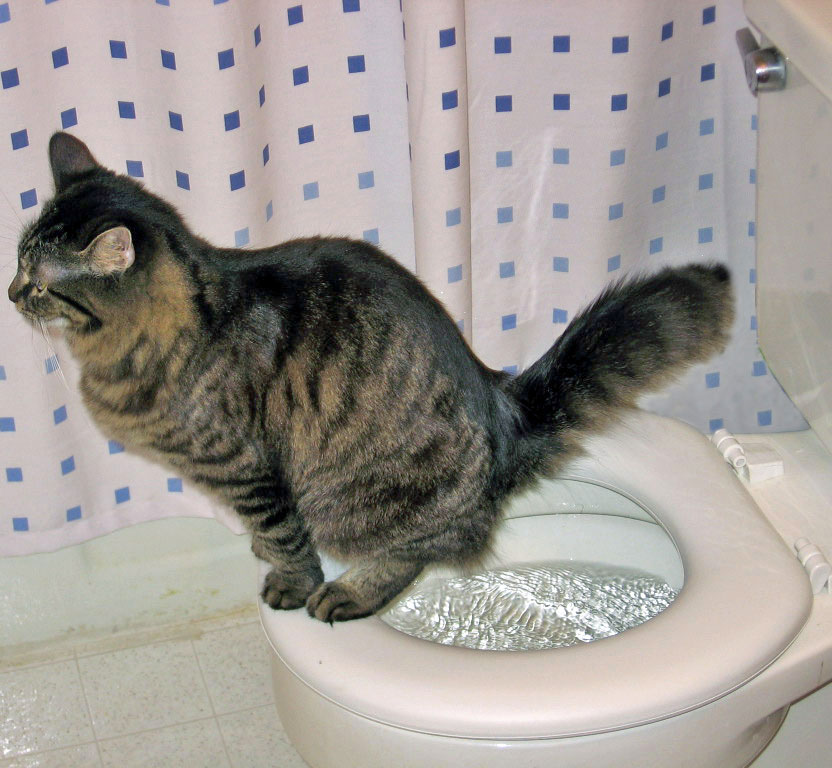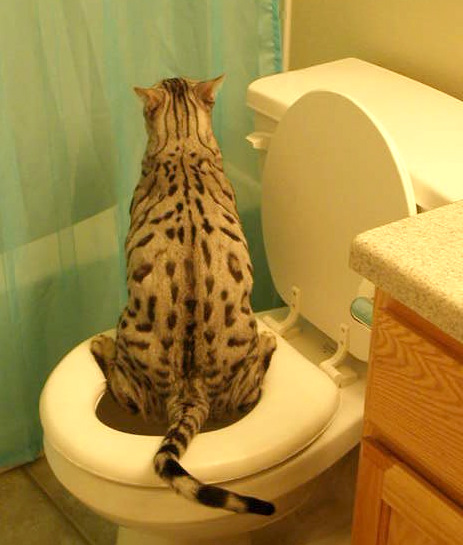Prevent Toilet Disasters: Never Flush Cat Poop Down Your Toilet - Professional Advice
Prevent Toilet Disasters: Never Flush Cat Poop Down Your Toilet - Professional Advice
Blog Article
What're your ideas concerning How to Dispose of Cat Poop and Litter Without Plastic Bags?

Introduction
As pet cat proprietors, it's necessary to be mindful of how we deal with our feline buddies' waste. While it might seem convenient to flush pet cat poop down the commode, this practice can have detrimental repercussions for both the setting and human health.
Environmental Impact
Flushing pet cat poop introduces unsafe virus and bloodsuckers into the supply of water, positioning a substantial risk to water ecological communities. These contaminants can negatively impact aquatic life and compromise water quality.
Health and wellness Risks
In addition to ecological problems, purging feline waste can also present health dangers to humans. Feline feces might include Toxoplasma gondii, a bloodsucker that can trigger toxoplasmosis-- a possibly extreme illness, especially for expectant females and individuals with weakened body immune systems.
Alternatives to Flushing
Thankfully, there are much safer and a lot more accountable methods to deal with pet cat poop. Think about the adhering to options:
1. Scoop and Dispose in Trash
One of the most typical technique of disposing of cat poop is to scoop it right into a biodegradable bag and throw it in the garbage. Be sure to make use of a specialized litter scoop and dispose of the waste immediately.
2. Use Biodegradable Litter
Select eco-friendly feline clutter made from products such as corn or wheat. These clutters are environmentally friendly and can be securely taken care of in the trash.
3. Bury in the Yard
If you have a yard, consider hiding cat waste in a marked location far from veggie gardens and water resources. Make sure to dig deep sufficient to prevent contamination of groundwater.
4. Set Up a Pet Waste Disposal System
Invest in a family pet garbage disposal system especially developed for pet cat waste. These systems use enzymes to break down the waste, decreasing smell and ecological influence.
Final thought
Responsible family pet possession expands beyond supplying food and shelter-- it additionally includes proper waste monitoring. By avoiding purging pet cat poop down the bathroom and choosing different disposal methods, we can reduce our environmental impact and shield human health and wellness.
Why You Should Never Flush Cat Poop Down the Toilet
A rose by any other name might smell as sweet, but not all poop is created equal. Toilets, and our sewage systems, are designed for human excrement, not animal waste. It might seem like it couldn’t hurt to toss cat feces into the loo, but it’s not a good idea to flush cat poop in the toilet.
First and foremost, assuming your cat uses a litter box, any waste is going to have litter on it. And even the smallest amount of litter can wreak havoc on plumbing.
Over time, small amounts build up, filling up your septic system. Most litter sold today is clumping; it is made from a type of clay that hardens when it gets wet. Ever tried to scrape old clumps from the bottom of a litter box? You know just how cement-hard it can get!
Now imagine just a small clump of that stuck in your pipes. A simple de-clogger like Drano isn’t going to cut it. And that means it’s going to cost you big time to fix it.
Parasitic Contamination
Believe it or not, your healthy kitty may be harboring a nasty parasite. Only cats excrete Toxoplasma in their feces. Yet it rarely causes serious health issues in the cats that are infected. Most people will be fine too if infected. Only pregnant women and people with compromised immune systems are at risk. (If you’ve ever heard how women who are expecting are excused from litter cleaning duty, Toxoplasma is why.)
But other animals may have a problem if infected with the parasite. And human water treatment systems aren’t designed to handle it. As a result, the systems don’t remove the parasite before discharging wastewater into local waterways. Fish, shellfish, and other marine life — otters in particular — are susceptible to toxoplasma. If exposed, most will end up with brain damage and many will die.
Depending on the species of fish, they may end up on someone’s fish hook and, ultimately on someone’s dinner plate. If that someone has a chronic illness, they’re at risk.
Skip the Toilet Training
We know there are folks out there who like to toilet train their cats. And we give them props, it takes a lot of work. But thanks to the toxoplasma, it’s not a good idea.

Hopefully you liked our article on How to Dispose of Cat Poop and Litter Without Plastic Bags. Many thanks for taking a few minutes to read our article. Sharing is nice. Helping others is fun. We enjoy reading our article about Don’t flush cat feces down the toilet.
Call Today Report this page